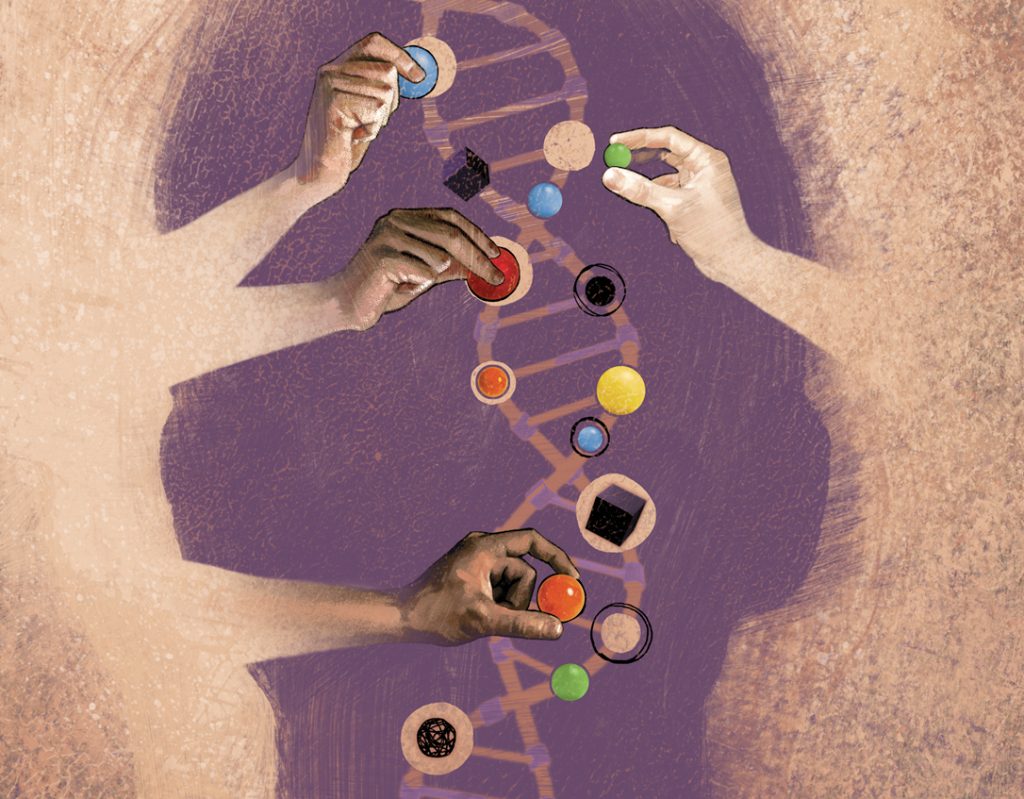
Genetics and Intelligence: Unraveling the Complex Relationship
The question of whether genetics plays a part in intelligence has been a topic of debate and study for decades. While it’s clear that both genetics and environmental factors contribute to a person’s intelligence, understanding the extent of genetic influence and how it interacts with environmental factors is a complex endeavor. In this blog post, we will explore the role genetics plays in intelligence, the ongoing research in the field, and the broader implications of this topic.
Defining Intelligence
Before delving into the role of genetics in intelligence, it’s essential to define what we mean by “intelligence.” Intelligence is a multifaceted and abstract concept, and researchers have struggled to develop a universally accepted definition. Some commonly recognized aspects of intelligence include problem-solving abilities, logical reasoning, memory, creativity, and adaptability. However, it’s important to note that intelligence encompasses a wide range of skills and capabilities, and no single measure can fully capture a person’s intellectual capacity.
The Nature vs. Nurture Debate
The role of genetics in intelligence is often framed within the context of the “nature vs. nurture” debate. This debate centers around the question of whether our genes (nature) or our environment and experiences (nurture) have a more significant impact on our development, including intelligence.
Historically, this debate has been polarized, with some advocating that genetics is the primary determinant of intelligence and others emphasizing the influence of environmental factors, such as upbringing, education, and socio-economic conditions. However, contemporary research suggests that this debate oversimplifies the complex interplay between genetics and environment.

Heritability of Intelligence
Heritability is a concept used to quantify the extent to which genetic factors contribute to individual differences in a specific trait, such as intelligence. Heritability is typically expressed as a statistic ranging from 0 to 1, with higher values indicating a stronger genetic influence.
Research has consistently shown that intelligence has a heritability value greater than zero, indicating that genetics plays a role in individual differences in intelligence. However, it’s essential to understand what heritability means in this context. A heritability value of 0.5, for example, means that about 50% of the variability in intelligence within a population is due to genetic factors, while the remaining 50% is due to environmental factors.
Twin and Family Studies
One way researchers have explored the heritability of intelligence is through twin and family studies. These studies involve comparing the intelligence of identical twins (who share 100% of their genes) and fraternal twins (who share around 50% of their genes), as well as other family members.
Twin and family studies have consistently shown that identical twins tend to have more similar intelligence scores than fraternal twins or non-twin siblings. This suggests that genetic factors play a role in intelligence differences among individuals.
Genes and Intelligence
While it’s clear that genes are involved in shaping our intelligence, identifying specific genes responsible for intelligence has proven to be a challenging task. Intelligence is a polygenic trait, meaning that it is influenced by multiple genes, each of which has a small effect. Recent advancements in genetics research, particularly genome-wide association studies (GWAS), have identified several genes that may be associated with intelligence. However, these findings are still preliminary, and the specific genetic mechanisms at play are not fully understood.

Gene-Environment Interactions
One of the reasons the nature vs. nurture debate oversimplifies the relationship between genetics and intelligence is the concept of gene-environment interactions. Genes and the environment do not work in isolation; they interact with each other in complex ways.
For example, studies have shown that individuals with a genetic predisposition for higher intelligence may benefit more from educational opportunities. In contrast, those with the same genetic predisposition but limited access to quality education may not reach their full intellectual potential.
This interaction underscores the importance of creating an enriched environment that fosters intellectual growth, regardless of an individual’s genetic makeup. It also highlights that genetic predisposition is not a fixed limit on a person’s potential but a range of possibilities influenced by the environment.
Early Childhood Development
Research suggests that genetics may have a more substantial influence on intelligence during early childhood than later in life. This period is crucial for brain development, and genetic factors that affect cognitive development may have a more prominent role in shaping a child’s intelligence.
However, as individuals grow and their experiences diversify, environmental factors become increasingly important. Education, socio-economic status, access to resources, and life experiences all play significant roles in determining a person’s intellectual capabilities.
The relationship between genetics and intelligence is complex and multifaceted. While it’s clear that genetics plays a part in shaping our intellectual capabilities, it is equally evident that environmental factors, early childhood experiences, education, and personal efforts all contribute significantly to a person’s intelligence. As our understanding of the interplay between genes and environment continues to evolve, it is essential to approach this topic with ethical sensitivity and a commitment to promoting equity and individual potential. Ultimately, intelligence is a complex and dynamic trait that defies simplistic explanations, and our focus should be on fostering opportunities and environments where every individual can thrive to their fullest potential.
You May Also Like

The Bible vs Science: A Christian’s Perspective on the Big Bang Theory
2022-04-04
9 Reasons Why You Should Start Looking Into GMOs
2022-04-04


